After graduating from university, I decided to take a gap year (7 months) abroad in Italy and Taiwan. Money has always stopped me from entertaining this idea and still limits how I travel, but I’ve found a way that works for me.
I’m still in Taiwan for another month, but up to this point, I didn’t have a clear plan for what I would be doing abroad. Now that I’m certain where I’ll be for the remainder of my stay, I thought I’d share how my plans have unfolded. I can say for sure that what’s allowed me to travel this way is a combination of luck, stubbornness, and stupidity. This is how I’ve been able to see parts of the world on a lower budget.
Debt-free
The main reason I’ve been able to take this gap year is that my tuition, housing, and groceries were all covered by my school. I attended the University of Wisconsin-Madison, which gave me amazing financial aid, allowing me to hold on to all the money I had saved in high school (What a relief!). This also meant that any money I made working part-time during uni could also be saved. If I had student loans, I likely wouldn’t have entertained the idea of traveling immediately post-grad.
In preparation
In my final semester of uni, I started thinking of going abroad for a bit. School would no longer be a barrier, so I just had to afford it. Most of the time, I try not to let money be an obstacle. I know this sounds incredibly out of touch, but it’s just how I try to think—I know at the end of the day everyone still needs money (unfortunately).
I think this way because when I wanted to learn something as a kid, my parents found a way to let me learn. Despite not having the money to buy anything brand new, they found a way to make it work. They bought my first snowboard and our piano and my drum kit and my bicycle, all secondhand. Even though our piano was out of tune with chipped, sticky keys, we could still read the same music as anyone else. Maybe I could do the same with traveling; an out-of-tune melody, but a melody all the same.
Conventional travel and tourism is expensive; I wanted a slower, more immersive experience anyways. I looked up some ways of budget traveling and found out about work exchanges: working somewhere in return for housing and oftentimes food. There’s still money involved in this (the plane ticket and membership cost for using the service), but it's nothing compared to renting an apartment or hotel for months at a time. Finding a routine and community somewhere local fit what I wanted out of traveling, and I liked the challenge of bringing only what you need in a backpack and finding creative ways to see and explore on a tight budget.
From my original savings, I set aside a few months’ worth of rent for when I would come back. I worked full time for the summer, 40 hours a week split between two restaurants as a line cook and server. All the money I made at the restaurants went towards the trip.
The work exchange websites I used were Workaway and HelpX, but there are also other ones like Worldpackers and WOOF. My plane ticket was about 1600 US dollars. I took the graduation gift money my parents, uncle, and aunt gave me and used it to help pay for the ticket. A three leg trip, US to Italy, Italy to Taiwan, Taiwan to US. My membership for the work-exchange platform was 45 USD for Workaway and 20 for HelpX. I bought two backpacks for my trip, both from LL Bean. A 39 L bag, about 150 US dollars, and a foldable bag, about 30 USD, both with a student discount.
October and November - Imbersago, Italy
I started my traveling with a work exchange in Northern Italy. I wanted to see another country before Taiwan, somewhere completely foreign, so I set aside two months in a town called Imbersago. During those two months, I stayed with an Italian family, walking their dog, driving their teenagers around, cooking meals, and doing general house work. Five days on, two days off.
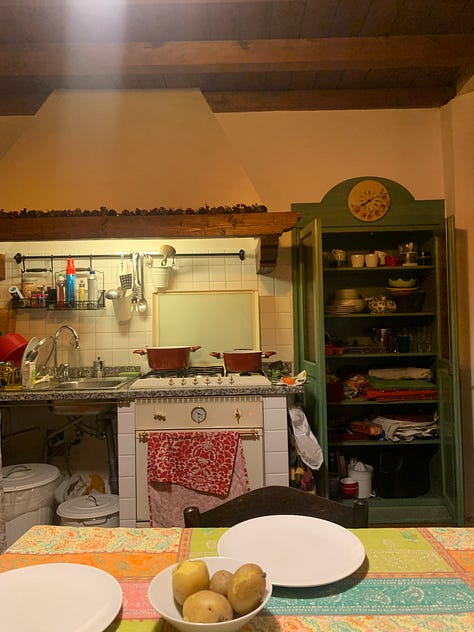

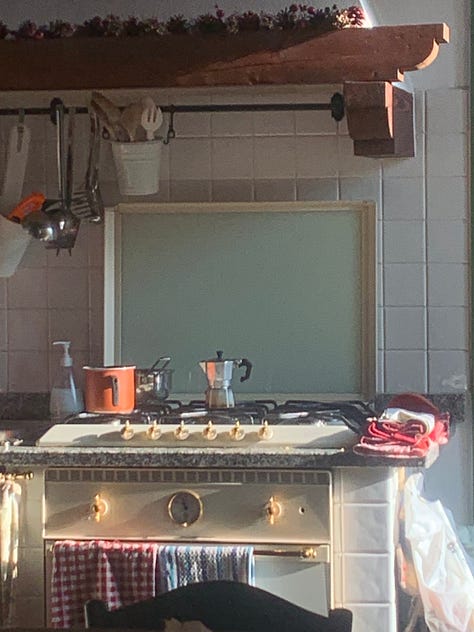
The work was easy going. I had plenty of time between tasks to take a walk or grab a coffee, which my hosts would encourage me to do. They would often let me use their car to take a trip up to the mountain and recommend places I hadn’t seen yet. On the weekends, they sometimes had relatives over. If not, they might take me to a nearby city: Lecco, Como, Bergamo, or Monza. Their home was a ten-minute walk to the Adda River, so I spent a lot of days down there.
The cost of living in Italy isn’t far from the US, so I tried to spend more conservatively. If I ate at home, all my meals were free; I did that most of the time. I spent most of my money on train tickets to nearby cities, trying small bites and pastries and coffees.
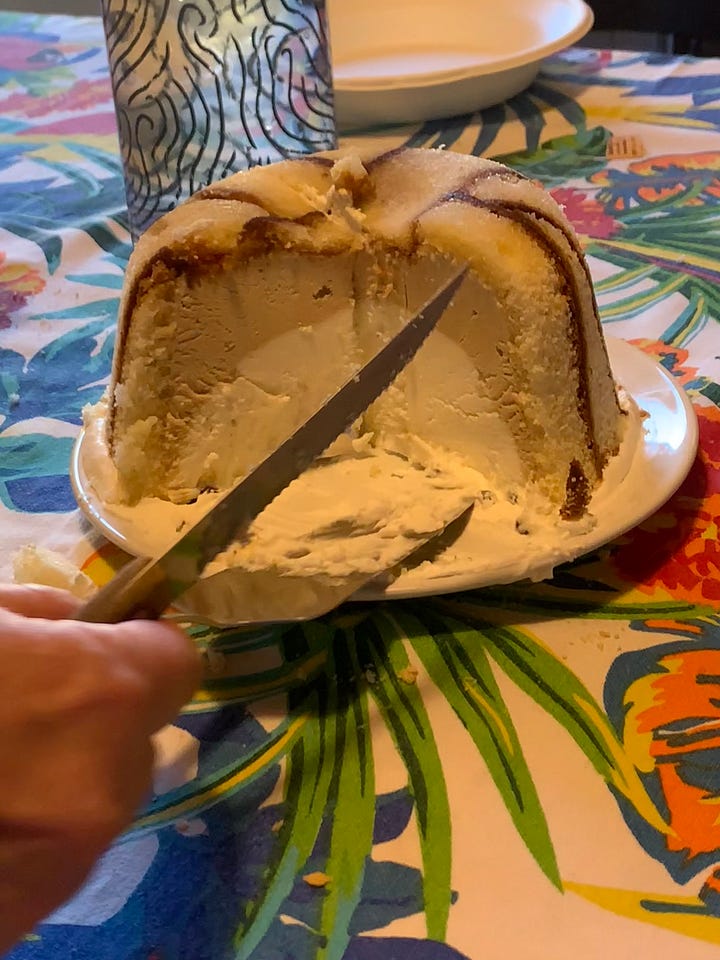
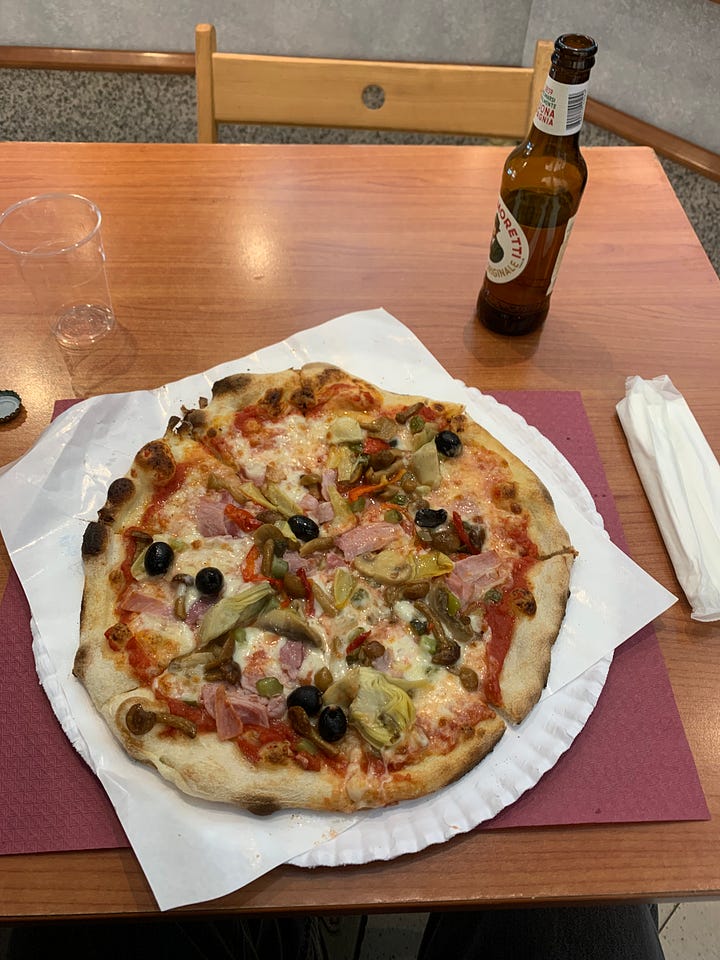
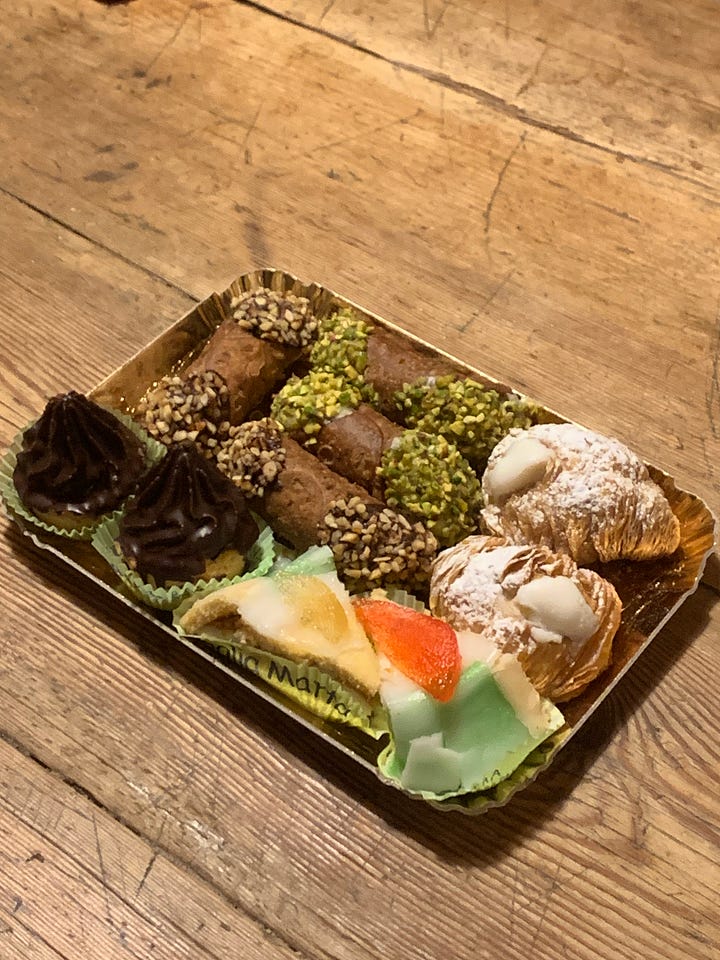

It was very peaceful—a lot of time to walk and think and cook. I didn’t gain many practical skills, but I didn’t expect to. I spent some time writing and much more reading. I got to practice my Italian, though the confidence I gained to speak it hasn’t stayed with me. I made a few friends from the Workaway website, and they showed me Italy through their eyes. When it rained, I read and wrote; when it stopped, I walked and ran. It was lovely driving around the countryside. It was peaceful but, at times, also lonely. In November, I bought a flight to London for a weekend and slept in a hostel and met up with a couple of friends.
My credit card statements for October ended up being 700 USD and for November 800 USD. My highest step count was 45,000. I ran my first-ever 10 miles. I can drive manual gear now.
December - Taipei, Taiwan
Taiwan was a little different; I planned to stay for five months. I arranged another work exchange, this time for a month at a strawberry farm in the countryside. I left the rest of my time unplanned. Many of my relatives are in Taiwan, so the worst case was I stayed at their place. This back-up plan gave me enough confidence to figure things out along the way instead.
In December, I staged at a restaurant in Taipei. I asked a friend in the city for restaurant recs, and they sent me this place among many others. I messaged the chef on Instagram when I was in Italy, and we arranged a date to meet for coffee once I landed in Taiwan. Once I arrived in Taipei, I went to the restaurant to introduce myself and share my plans. The chef agreed to let me intern there for that month. 40 hours a week.
With the stage, I was pretty busy. This gave me fewer opportunities to spend my money. The restaurant had staff meals every day, but the cost of food in Taiwan is so much lower than the US that eating out never hurt my pockets much anyways.

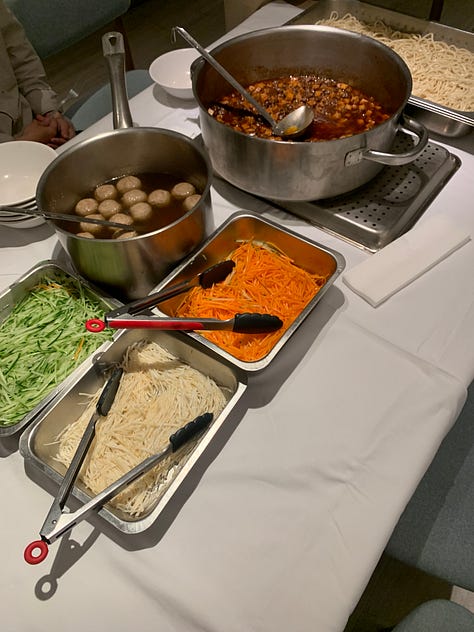

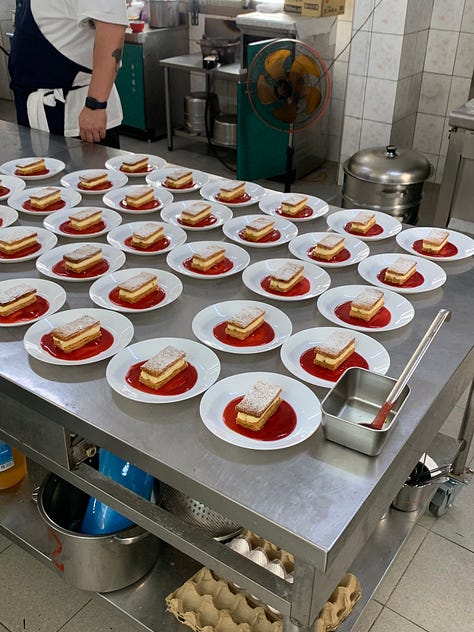
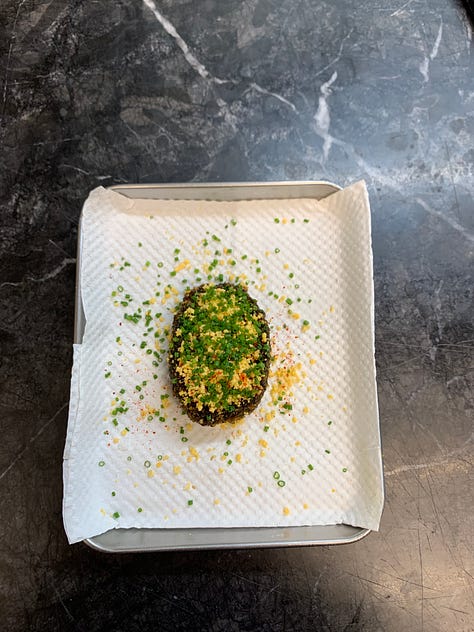
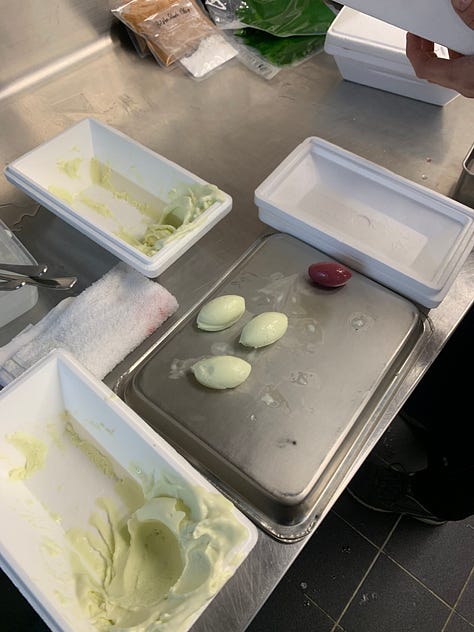
Not having known anybody in the city yet, I stayed at my dad’s friend’s place, which was an hour commute one way by the green line. Before work, I would go to a coffee shop or a park. On my days off, I would walk around, trying hole-in-the-wall places that had cheaper food.
I spent about 10000 NTD cash (304 USD) and my credit card statement was 200 USD. I bought a jacket—the Taiwan winter was colder than expected.
January - Tianwei, Taiwan
In January, I finished with the restaurant and left Taipei for my work exchange at a strawberry farm in the Changhua countryside. Like the restaurant, it was a full-time job. The owners provided me a room and free meals every day. We were outside every day. I spent some time drawing and learning a little more Taiwanese Hokkien.

Sometimes, I would go with my host to deliver strawberries. Her customers would bring strawberry cake, daifuku, and pannacotta when they came to pick up their berries. I ate strawberries every day and rode a moped. We made strawberry ice cream.
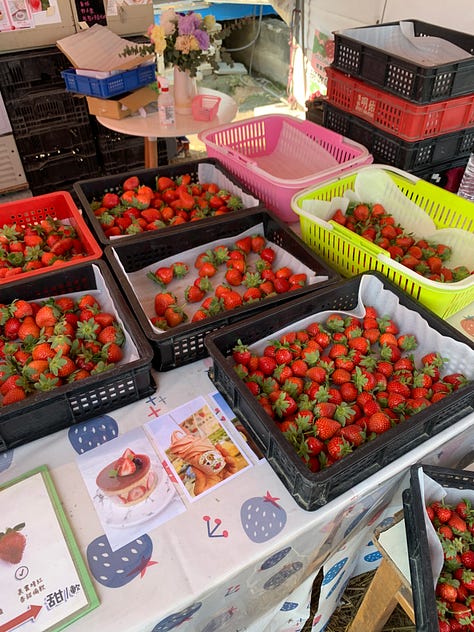

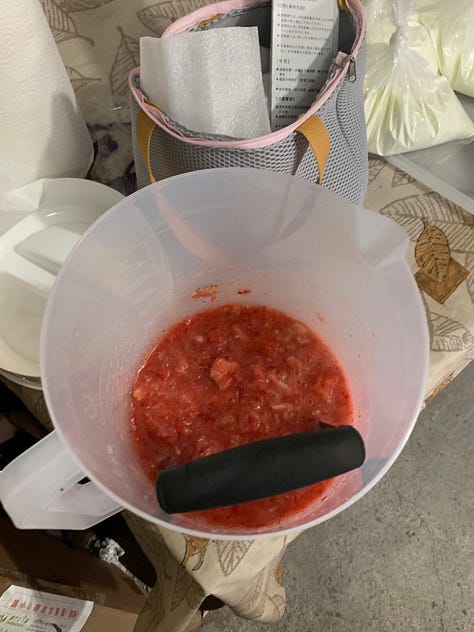

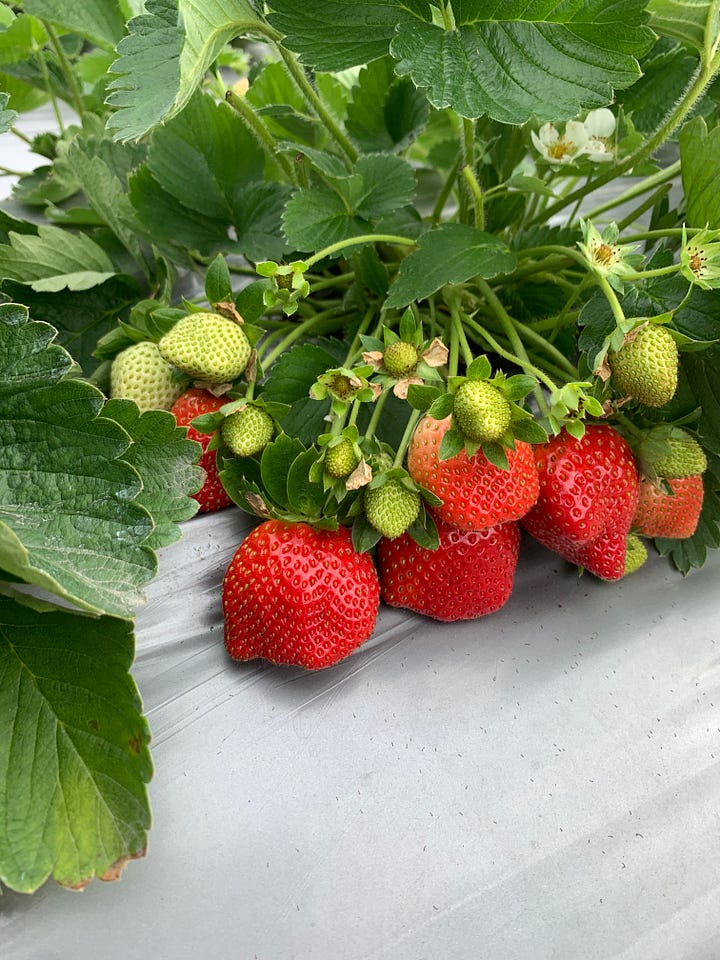
I spent about 5000 NTD (154 USD). My credit card statement was 200 USD. I brought two strawberry plants for my grandma.
Chinese New Year - Erlin, Taiwan
After the strawberry farm was finished, I went to my grandma’s for the Chinese New Year. This was the first year I’ve spent Chinese New Year in Taiwan. The tradition of gifting red envelopes to family members was something I missed out on while growing up in the US. This year, I got a bunch of envelopes, so that gave me the confidence to keep traveling.
February to present - Taipei, Taiwan
In December, a friend on the internet who also did pottery introduced me to some ceramic studios in Taipei. At one of the studios, I asked the owner if I could work there for free in exchange for some kind of housing arrangement. He agreed, saying we could keep in touch throughout January, and by the time I arrived in Taipei in February, there would be a place for me to stay.
At first, I stayed at the place they provided. It was about an hour’s commute by train, and I was sharing a room with someone. It was an ok arrangement, but I wasn’t a fan of the commute. I asked them if I could clean somewhere to sleep in the studio, would it be possible to stay there instead. The studio owner was hesitant at first, since there was no open space, but agreed.
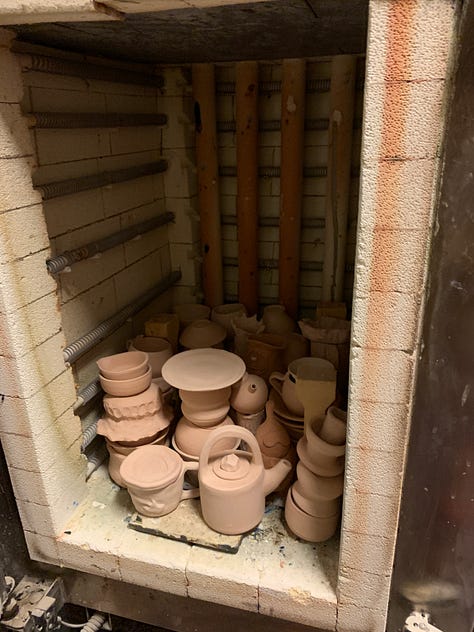

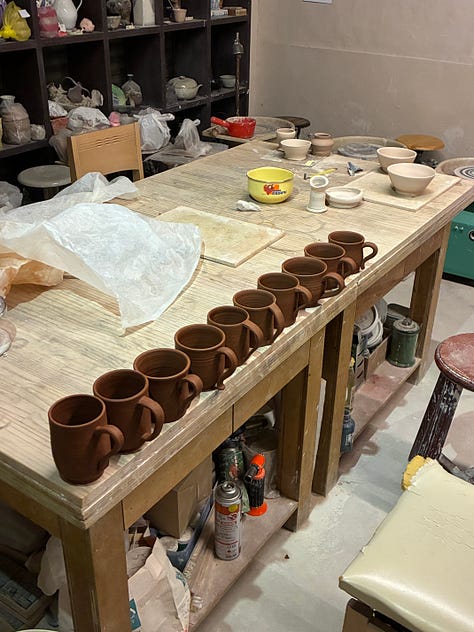
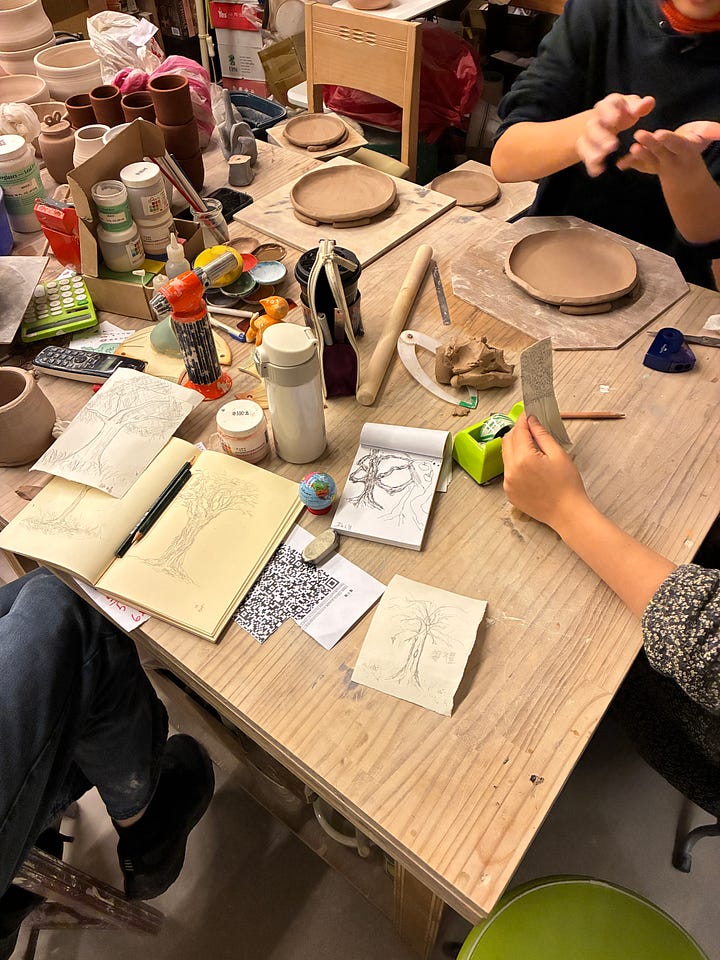
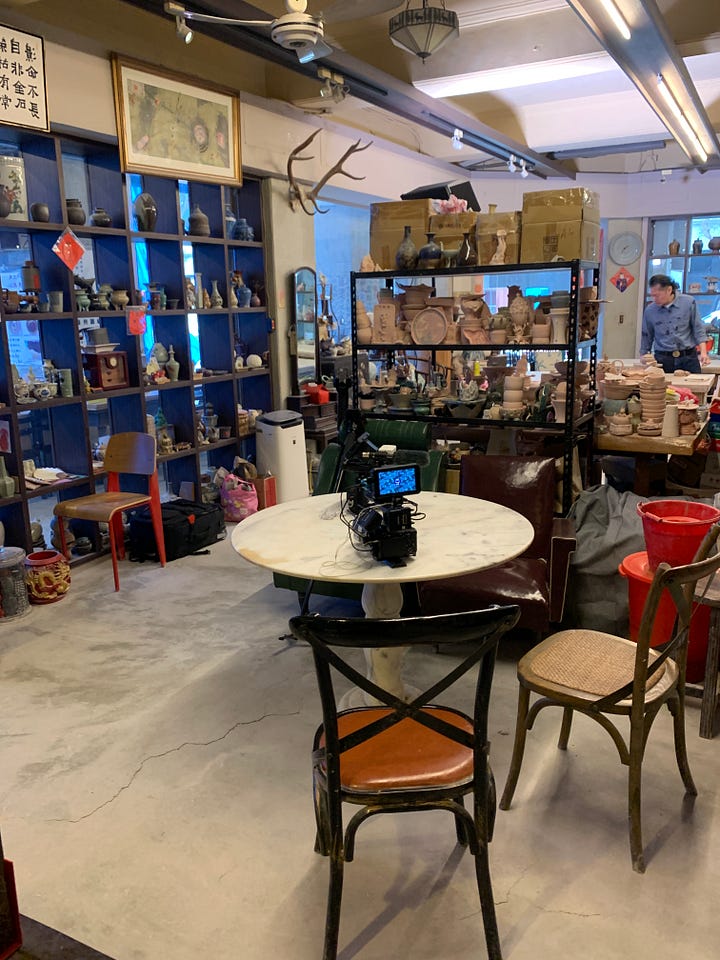
In the back of the studio is a closet used to store things. When I arrived, it was quite difficult to walk in, but after a couple of hours of organizing, I was able to clean out a little aisle to lie down. I brought my stuff and made base.
For the first month and a half, I slept pretty ok. Someone gave me a blanket, someone else a yoga mat, then a picnic blanket and a pillow. I bought a foam sleeping mat and layered the yoga mat and picnic blanket on top. It was a bit firm, but I liked the convenience.
Across the street is an exercise center. The membership fee is 900 NTD (30 USD). I go there every day to do a little workout or stretch, but mainly so I can shower.


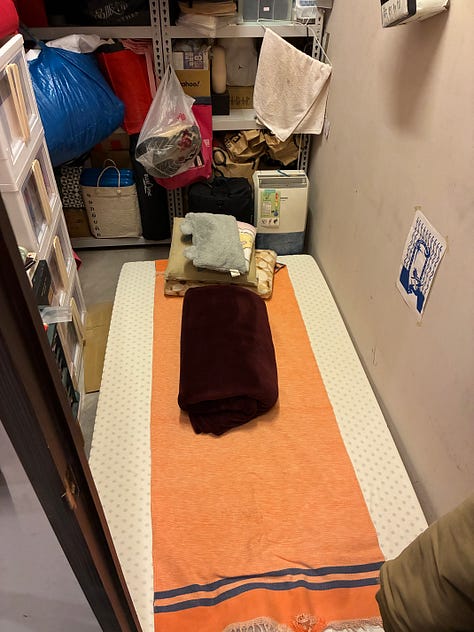
It was a great arrangement. I got some time to myself. I woke up everyday and had a coffee in the studio. I saved time on commuting and money on rent. I helped everyday with whatever needed to be done at the studio: cleaning wheels, glazing, plugging clay, clearing tables. I got no salary, so the owner didn’t pressure me to do anything; everything was my choice. In my free time, I could make anything I wanted.
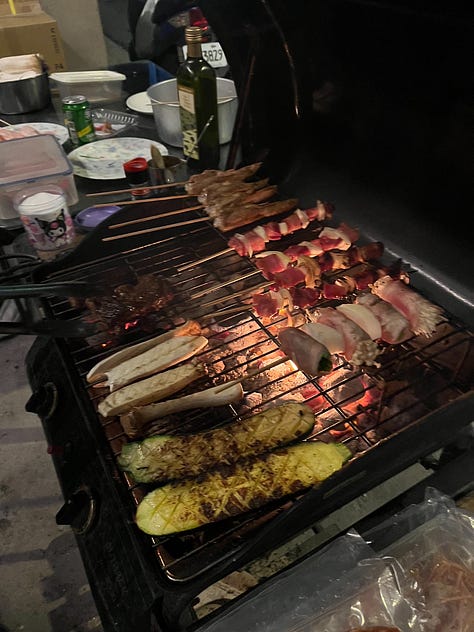
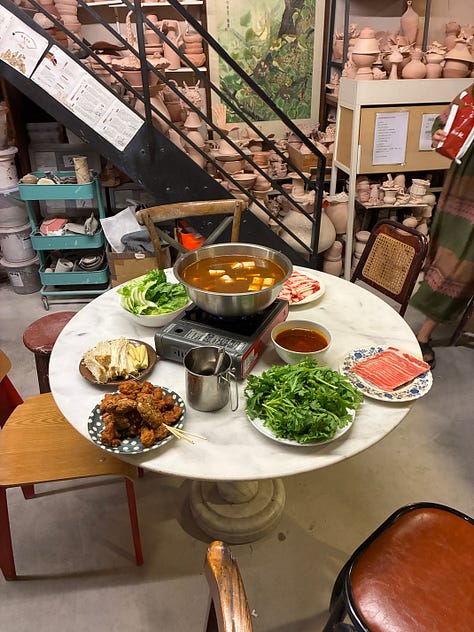
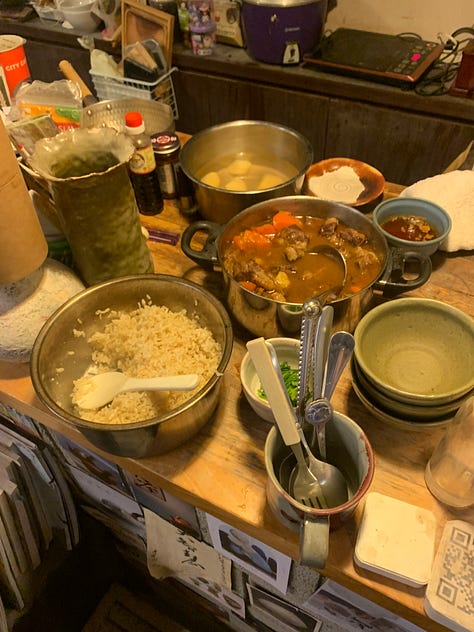
I hung out around the studio, helping out and meeting the regulars. There was even enough equipment to cook meals there. If I wanted to make food, the owner would buy the ingredients, and I would make some for everyone. We had stews and hotpots and barbecues. Everyone in the studio ended up being so dope. We would go out for food, play pool, go bouldering, hike, and pretty much do whatever. I did what I could, and in return, they took care of me. In the end, I got a better deal than I could have ever imagined.
The room cost me 0 USD. On average my neck pain waking up has been about a 6.5/10. The membership for two months was 60 USD. I’ll stay here until the end of April.
I hope this didn’t come off as preachy. I just didn’t think I could travel this long before I made a lot of money. This way of traveling has made it possible for me to do so with my current circumstances.
I know I’m a hard worker, but I still feel guilty when some things are handed to me. It’s safe to say I’ve gotten lucky, like having free education and no underlying medical conditions (except bad eyesight). I have parents who would willingly support me if anything happened. I’m fluent in Mandarin (more or less) and have family in another country. I want to share how lucky I am, but I also feel like I have to mention at every opportunity that I’m not rich. I feel the need to say it because traveling like this was not easy at all. I’m having a great time, but it didn’t just happen without trying, and I didn’t just buy some plane ticket on a whim.
Anyways, it’s almost time to leave now. Having this opportunity has been such a privilege. I’ve been away from home for 6 months now. I’ve seen a country I’ve never seen. I’ve learned to read some Mandarin. I’ve tried lots and lots of food. I’ve got an overflowing backpack that I don’t know how I’ll bring back. I’ve bought over 20 books and a few pots to bring back home, and a lot of people I’ll be looking forward to seeing when I come back.




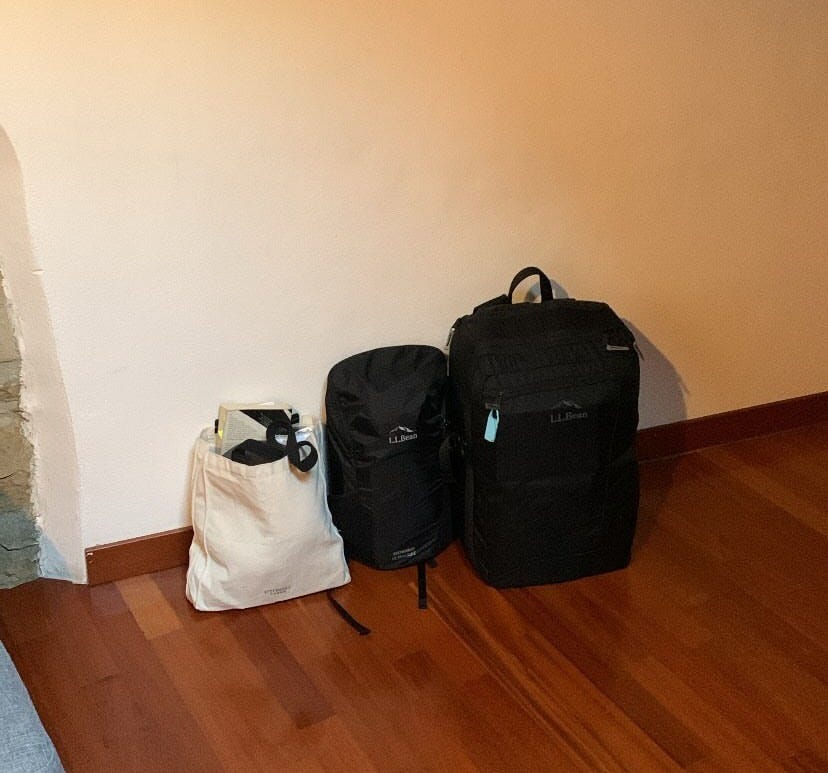
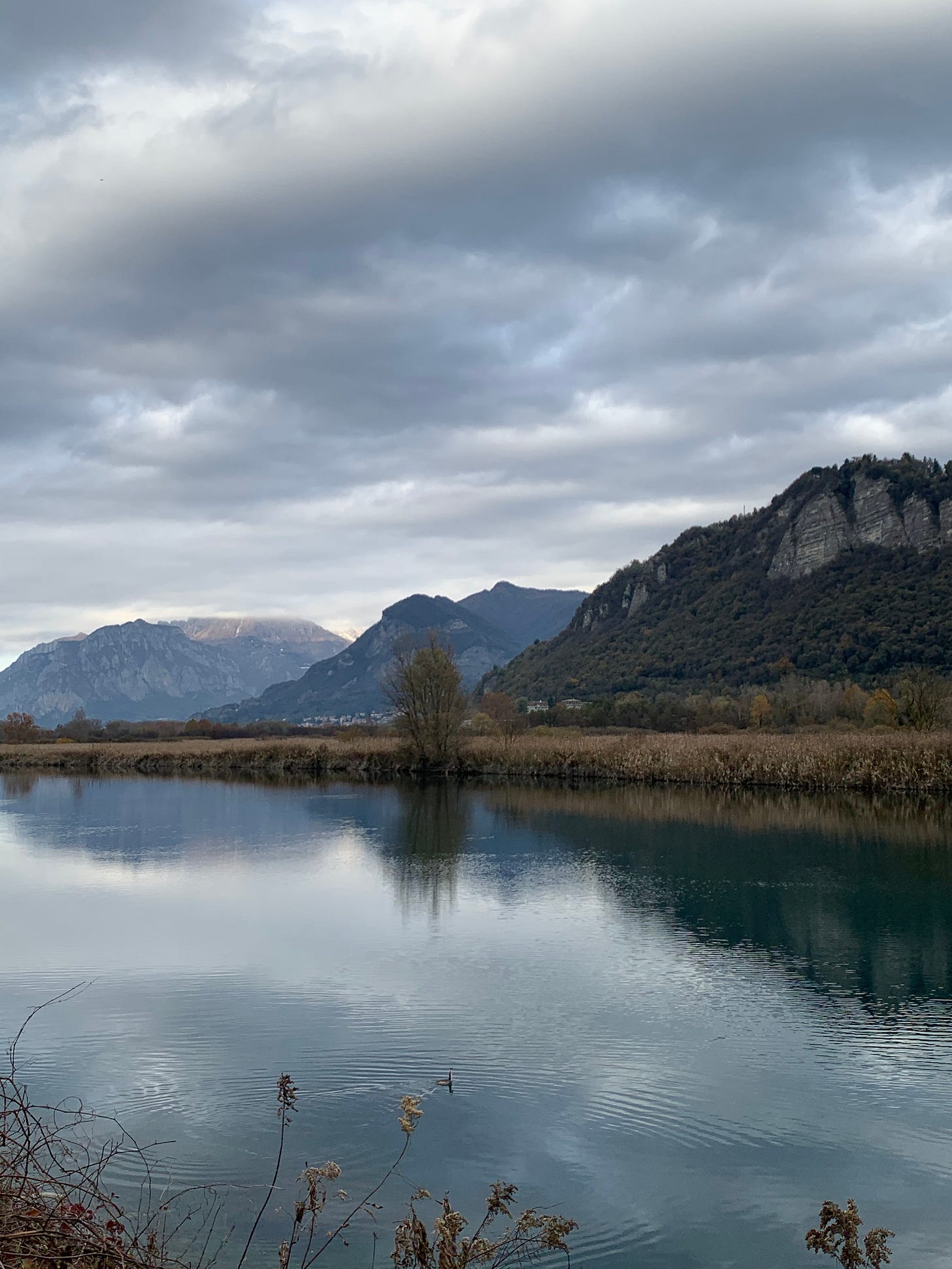
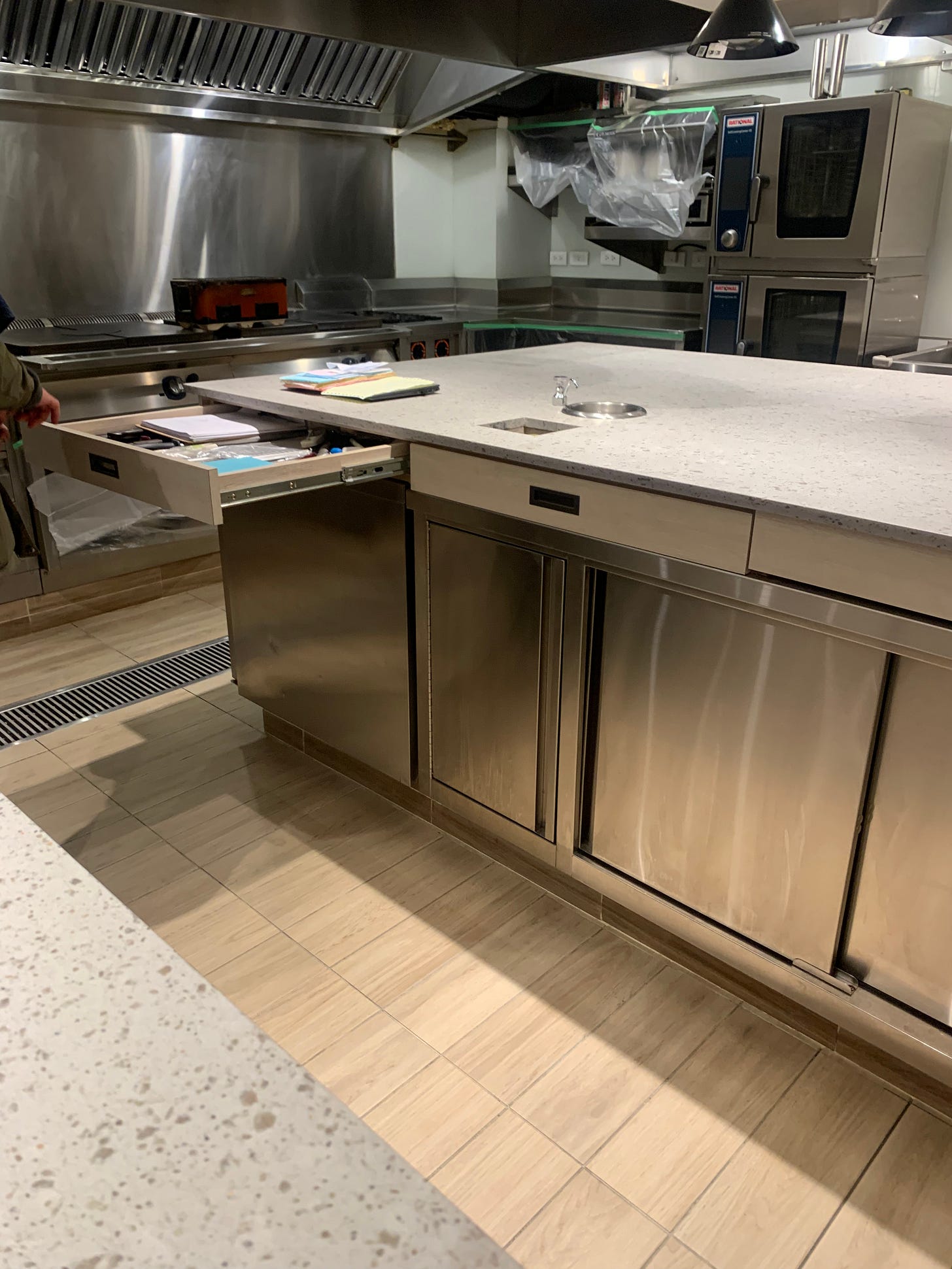
catching up on the lucas substack - feeling inspired to take a gap after my rotations 👀
BROOOO I'm so proud of you!! Making a house a home in every season you find yourself in is a quality skill, keep it going 🤧👏🏾💯